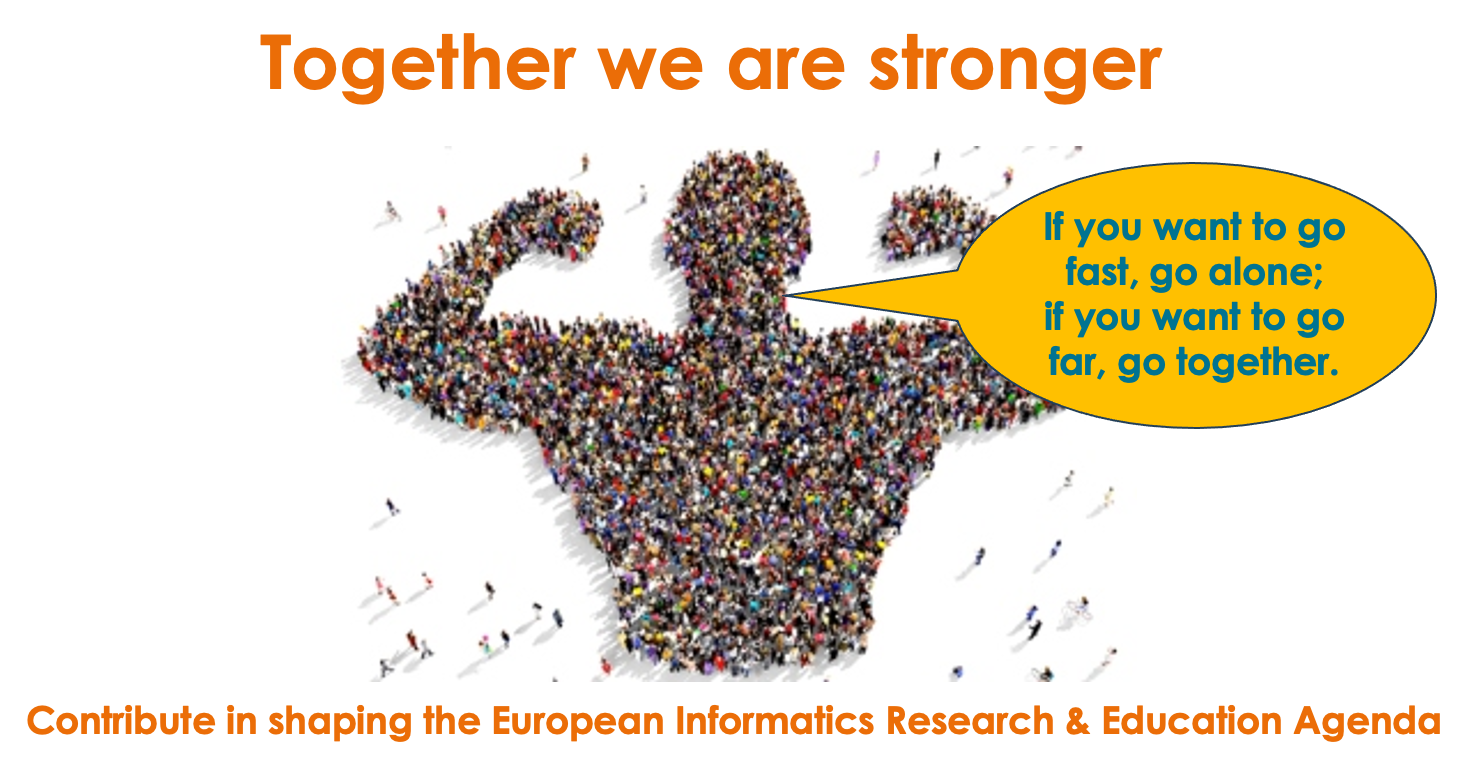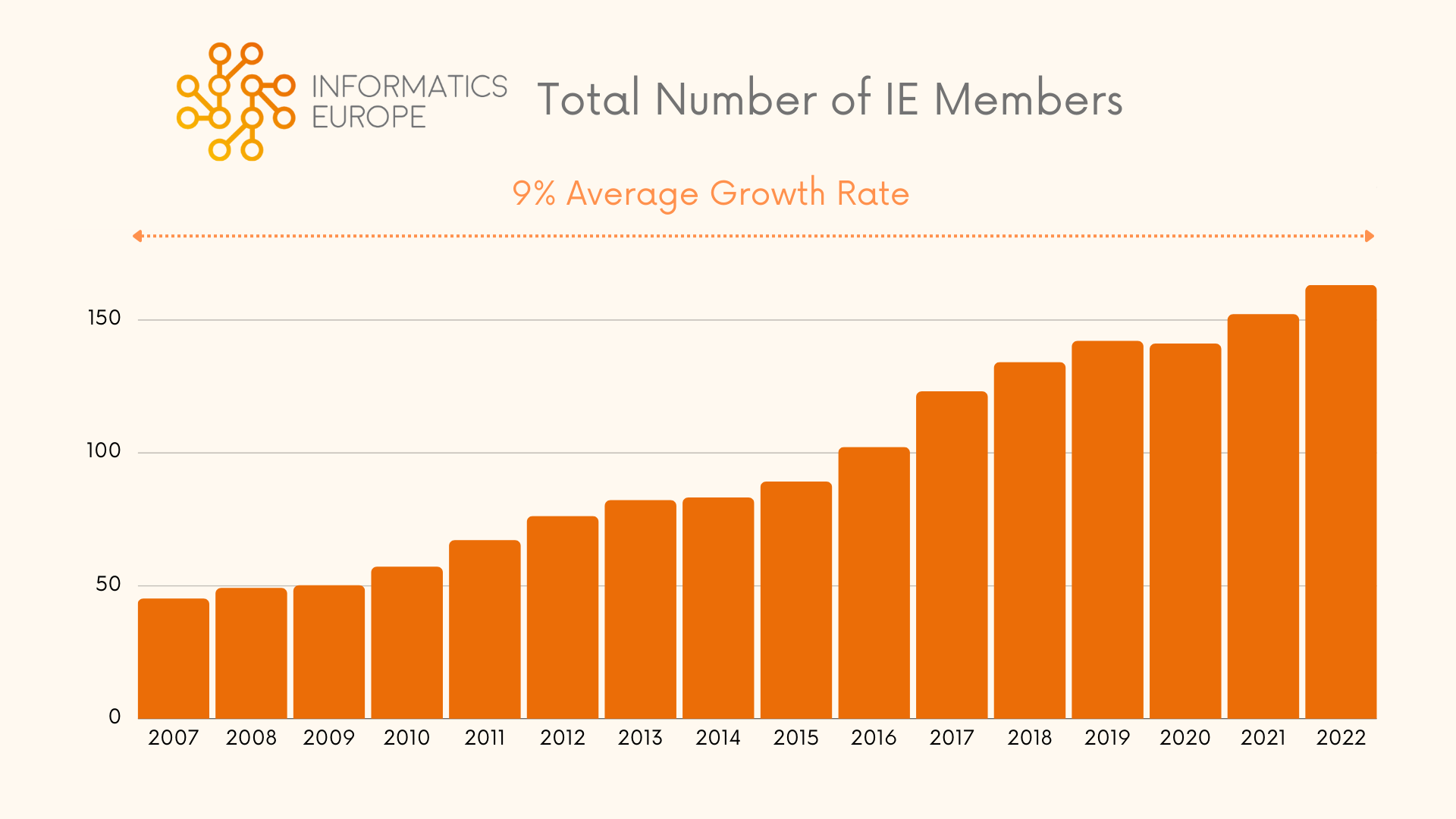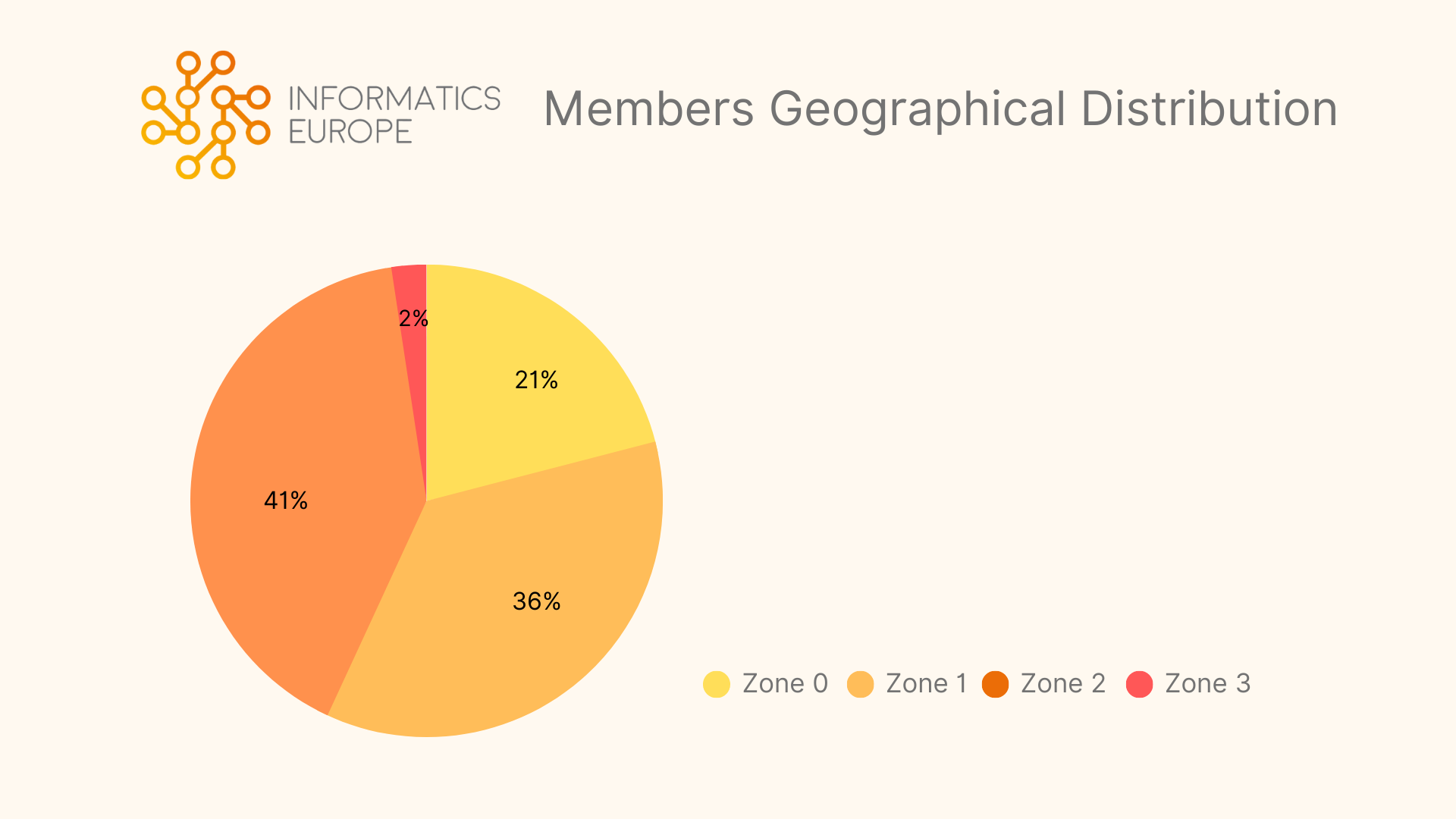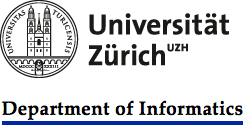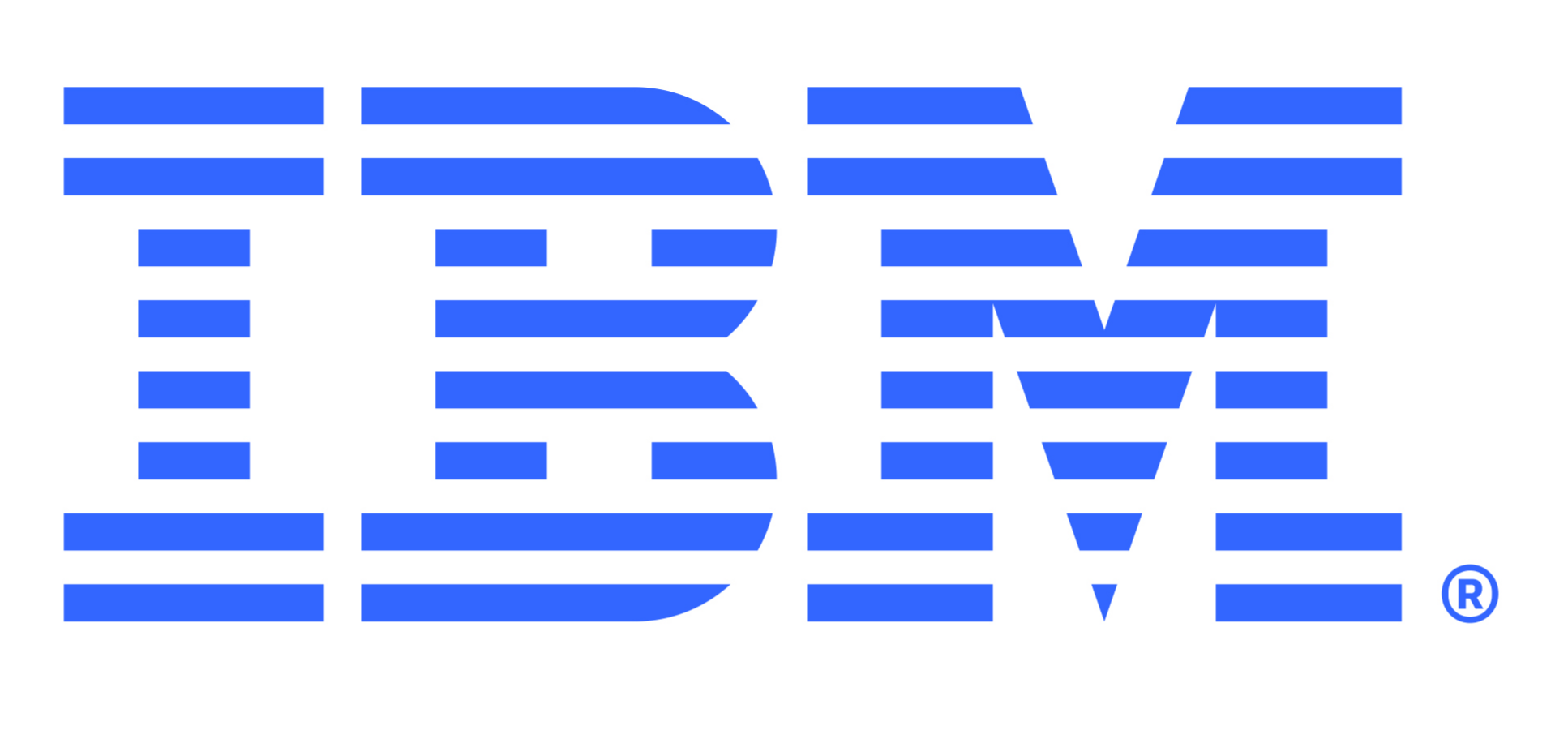20 Years of Community Work & Achievements
For the past two decades, Informatics Europe has been at the forefront of strengthening the unity and relevance of the European Informatics research and education community.
Through unwavering support from our member institutions and collaborative efforts of researchers across Europe, our community has achieved remarkable milestones for the benefit of the overall European informatics community.
Download our 20-Year Anniversary Flyer for a sharable overview of these achievements. The flyer offers a concise summary, while this webpage provides links to related activities and further details.
Strengthening the Standing of Informatics
The Informatics Europe community has been pivotal in positioning Informatics as a distinct scientific discipline. Our leadership in fostering Informatics Education at School, and the Informatics for All coalition in particular, have ensured the European Council considers our views on the key importance of Informatics in modern curricula. The Informatics Europe Higher Education Data Portal, a unique source of reliable data from over 20 countries, underpins critical managerial and policy decisions. Our recommendations on topics such as Open Access or Informatics Research Evaluation, acknowledge and cater to the unique nature of Informatics, ensuring proper assessment and support while safeguarding the interests of individual and academic contributors. Moreover, our tailored academic department assessments and leadership programs foster continuous improvement and cultivate a generation of visionary leaders. Finally, providing a platform for exchange, discussion, recognition and collaboration, Informatics Europe plays a fundamental role in uniting the community and advocating Informatics Research and Education under a common voice.
Related Activities
Europe cannot afford to miss the boat, Informatics Education in Europe: Are We All in the Same Boat?, Informatics Reference Framework for School, Rome Declaration, Best Practice in Education Award, Informatics Research Evaluation, Training Schools, Leaders WS, ECR WS, Publications, Open Citations Chapter, Sister organizations, National Associations, ECSS.
Promoting Responsible Informatics Teaching and Research
Informatics Europe pioneered spotlighting gender balance in informatics academia since 2012, with the founding of the Women In Research and Education Working Group, comprising researchers from 16 member institutions. To date, our Minerva Informatics Equality Award showcased over 100 valuable initiatives enhancing women's careers in Informatics, honouring 10 exceptional ones, and the EUGAIN – European Network for Gender Balance in Informatics COST Action united 167 researchers from 46 countries during 4 years. Our engagement in Ethics4EU and Inclusion4EU (Erasmus+ projects) and the Digital Humanism Initiative has further advanced the integration of ethics, diversity and human-centered approaches in Informatics education and technology development, including ready-to-use teaching material. Also our Informatics Europe Best Dissertation Award, recognizing exceptional PhD dissertations, values societal impact as a distinctive criterion. Finally, our Green ICT Working Group promises significant, forthcoming contributions to sustainable and responsible Informatics in Europe.
Related Activities
Engaging with Society on the Nature and Impact of Informatics
Through our collective efforts, Informatics Europe has become a recognized spokesperson on Informatics Education at the European Commission and is expanding its influence in Brussels and beyond. We regularly provide critical feedback, participate in expert groups and ensure Informatics remains central to national and European policy discussions. Our work also underscores Informatics' crucial role in other disciplines, particularly focusing on its impact on education and research. Timely society and economic topics such as the digital talent gap and related upskilling – reskilling challenges, or the impact of AI in Education have repeatedly been discussed by our community during IE’s Annual Summit workshops, and industry-academia partnerships promoted. Our recommendations and on open publication schemes and open-source principles are also oriented to enhance Informatics' societal and economic contributions.


